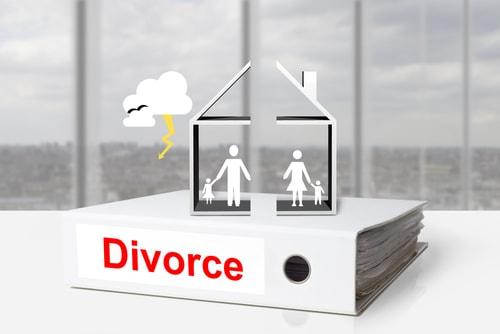Recent Blog Posts
Is Your Spouse a Narcissist?
Posted on November 17, 2017 in Divorce
 Does your spouse often attempt to control or manipulate you in a malicious way? Does he or she dismiss your feelings as unimportant or nonsensical? Do you ever feel like you are losing your sense of self and only living to please your demanding and unreasonable spouse? If you, you may be married to a narcissist.
Does your spouse often attempt to control or manipulate you in a malicious way? Does he or she dismiss your feelings as unimportant or nonsensical? Do you ever feel like you are losing your sense of self and only living to please your demanding and unreasonable spouse? If you, you may be married to a narcissist.
The term narcissist technically refers to those with a mental illness called Narcissistic Personality Disorder (NPD) but is often also used to describe those individuals who have some of the characteristics of a person with NPD. The Diagnostic and Statistical Manual of Mental Disorders defines the criteria for an NPD diagnosis. Individuals with Narcissistic Personality Disorders often exhibit behaviors such as:
- Having an Exaggerated Sense of Self-Importance: Narcissists are often very full of themselves. They believe that their accomplishments are more important than those of others and that they are superior to those around them. They have grandiose perceptions of themselves and do not appreciate when others do not share these perceptions. This often manifests into behavior like making every conversation about himself or herself, or craving to be the center of attention at all times. Narcissists may also indulge in unrealistic fantasies of success, fame, power, or wealth.
Continue Reading ››
Do I Need Grounds for Divorce?
Posted on November 15, 2017 in Divorce
 You may realize that divorce is technically a lawsuit that results in the end of a legal marriage. You may also know that in order to file a lawsuit, you must have a cause for legal action. In a car accident case, for example, property damage or bodily injury gives a person cause to file suit against the liable party. From the standpoint of the law, a divorce is no different. So, what are the causes that give a person the ability to file a petition for divorce? Causes of action in divorce proceedings are known as grounds, and the number of possible divorce grounds might surprise you.
You may realize that divorce is technically a lawsuit that results in the end of a legal marriage. You may also know that in order to file a lawsuit, you must have a cause for legal action. In a car accident case, for example, property damage or bodily injury gives a person cause to file suit against the liable party. From the standpoint of the law, a divorce is no different. So, what are the causes that give a person the ability to file a petition for divorce? Causes of action in divorce proceedings are known as grounds, and the number of possible divorce grounds might surprise you.
Irreconcilable Differences
Since changes to the Illinois Marriage and Dissolution of Marriage Act went into effect in 2016, there is exactly one cause of action for a divorce in Illinois. All divorces in the state are now granted on the grounds of irreconcilable differences. More specifically, the court may only grant a divorce if that "irreconcilable differences have caused the irretrievable breakdown of the marriage." In addition, the court must also find that efforts at saving the marriage would be "impracticable and not in the best interests of the family.
Continue Reading ››
Yours, Mine, or Ours? Identifying Marital Property in Divorce
Posted on November 09, 2017 in Asset Division
 When two people get married, they often choose to combine all of their financial interests. They may have joint checking and savings accounts, put both names on loan documents and titles, and generally consult with one another about major purchases. Other couples may elect to keep things more separate. These couples may have joint accounts to be used for household bills and other expenses, but they may also have investments or property held in their own names. Whichever option a couple chooses, a divorce may leave more property subject to division than many people realize.
When two people get married, they often choose to combine all of their financial interests. They may have joint checking and savings accounts, put both names on loan documents and titles, and generally consult with one another about major purchases. Other couples may elect to keep things more separate. These couples may have joint accounts to be used for household bills and other expenses, but they may also have investments or property held in their own names. Whichever option a couple chooses, a divorce may leave more property subject to division than many people realize.
What the Law Says
If a divorcing couple is able to reach a reasonable agreement regarding the division of property, the court will approve the agreement without much a problem in most cases. If the couple cannot agree, however, Illinois law says that a court has the authority to divide the couple’s marital property in a manner that is equitable and just—not necessarily equally. Only marital property is subject to division in a divorce, and determining what constitutes marital property is the first step of the property division process.
Continue Reading ››
Review Your Parenting Plan for Holiday Arrangements
Posted on November 08, 2017 in Child Custody
 In about two weeks, families throughout the United States will get together to celebrate the Thanksgiving holiday. As you might expect, traditions often vary from one family to the next, but for most people, the most important part of the holiday season is the opportunity to visit with friends and loved ones—many who have traveled a great distance to be part of the festivities. If you are a divorced parent, however, planning for the holidays can be difficult as you most likely will need to coordinate your plans with those of your child’s other parent.
In about two weeks, families throughout the United States will get together to celebrate the Thanksgiving holiday. As you might expect, traditions often vary from one family to the next, but for most people, the most important part of the holiday season is the opportunity to visit with friends and loved ones—many who have traveled a great distance to be part of the festivities. If you are a divorced parent, however, planning for the holidays can be difficult as you most likely will need to coordinate your plans with those of your child’s other parent.
Rotating Holidays?
Illinois law provides that a parenting plan following a divorce must include a parenting time schedule. Must parenting plans also include provisions that indicate where and how the child will spend certain holidays, depending on which holidays are a priority for which parent. For example, if Thanksgiving is a major holiday among your extended family but not so much for the other parent’s family, your agreement could stipulate that your child is to stay with you each year at Thanksgiving. In other situations, an alternating or split holiday schedules may be more appropriate.
Continue Reading ››
Evaluating and Dividing Marital Property
Posted on November 02, 2017 in Asset Division
 One of the most difficult parts of a divorce can be the dividing of the marital property. Before the work of dividing the assets can even be started, the assets must be assigned a proper value.
One of the most difficult parts of a divorce can be the dividing of the marital property. Before the work of dividing the assets can even be started, the assets must be assigned a proper value.
How Marital Property Is Handled
Illinois considers all property, with extremely limited exceptions, acquired after the date of the marriage to be marital property. Unless the two sides come to an agreement on their own, the law requires the court to divide marital property equitably in a divorce. This means taking into account all of the relevant factors and dividing the property fairly. It is important to understand that “fairly” does not always mean “equally.”
How Much of the Value of an Asset Is Marital Property?
Some assets, such as a business or retirement account, may have been acquired before the marriage. However, most likely any increase in value to these assets after the date of the marriage may be considered marital property.
Continue Reading ››
Parental Relocation, Past and Present
Posted on October 24, 2017 in Child Custody
 After a divorce, many families decide to start fresh in other locations. However, if both spouses are still in the picture, there are rules governing where the custodial parent may move and the parenting time to which to the other parent is entitled. The state has a strong interest in children being able to see both their parents, and the laws surrounding relocation are designed to reflect this.
After a divorce, many families decide to start fresh in other locations. However, if both spouses are still in the picture, there are rules governing where the custodial parent may move and the parenting time to which to the other parent is entitled. The state has a strong interest in children being able to see both their parents, and the laws surrounding relocation are designed to reflect this.
Previous Law
Prior to 2016, the Illinois Marriage and Dissolution of Marriage Act (IMDMA) was fairly straightforward when discussing the matter of familial relocation. It allowed a relocation if it could be shown to be in the best interests of the child, not just those of the parent. Factors like feasibility of visitation for the noncustodial parent, the motives of the custodial parent, and the child’s overall quality of life had to be considered before a relocation was allowed.
Continue Reading ››
Visitation for Non-Parents in Illinois
Posted on October 20, 2017 in Child Custody
 For many families, it is considered a blessing to have a large number of relatives interested in visiting one another and helping raise children in a loving environment. In other situations, however, the family relationships may be strained, and a person with children may choose to limit his or her child’s interaction with other members of the child’s family. If you have been prevented from seeing or interacting with a child in your own immediate or extended family, it is important to understand how the law applies in such situations.
For many families, it is considered a blessing to have a large number of relatives interested in visiting one another and helping raise children in a loving environment. In other situations, however, the family relationships may be strained, and a person with children may choose to limit his or her child’s interaction with other members of the child’s family. If you have been prevented from seeing or interacting with a child in your own immediate or extended family, it is important to understand how the law applies in such situations.
Stepparent Visitation
Under Illinois law, stepparents have no inherent rights to visitation if the child’s biological parent (at least one) does not consent. However, since 1998, there has been some movement toward changing this. After a series of decisions involving the question of stepparents seeking visitation from parents who were still in the proverbial picture, Illinois courts essentially recognized that stepparents might have standing, or the legal capacity to bring suit over a specific alleged wrong. However, even with standing, most stepparents are not able to obtain visitation without a significant fight.
Continue Reading ››
Parental Rights and Losing Them
Posted on October 16, 2017 in Child Custody
 Despite a common misconception, merely being the biological parent of a child does not grant an adult immediate and total governance of that child’s life. Parental rights manifest when someone accepts legal responsibility regarding a child, and those rights can be lost. Still, there are quite a lot of misconceptions about parental rights that it is important to correct.
Despite a common misconception, merely being the biological parent of a child does not grant an adult immediate and total governance of that child’s life. Parental rights manifest when someone accepts legal responsibility regarding a child, and those rights can be lost. Still, there are quite a lot of misconceptions about parental rights that it is important to correct.
Definition of Parental Rights
Generally speaking, parental rights exist in any person who has been legally granted decision-making authority for a child—often referred to as legal custody. Despite the name, parental rights may be apply to anyone who has custody, including grandparents, or even an unrelated person or organization. It is a matter of good public policy and general fairness that, if possible, every child should have acknowledged legal parents. In Illinois, by law, a biological father actually has no legal rights to his child unless he acknowledges paternity.
Continue Reading ››
Marriage and Divorce Equality
Posted on October 12, 2017 in Divorce
 Proponents of marriage equality see the right to marry as fundamental to human dignity. However, very few advocates tend to think about the things that go along with marriage— namely, divorce. While in Illinois, same-sex couples have been permitted to marry and divorce in the same manner as opposite-sex couples for a number of years, the law was much slower to change in other states. While same-sex marriage was legalized nationwide in the summer of 2015, it can sometimes be an enormous hassle for same-sex couples to obtain a divorce, especially if there are children involved.
Proponents of marriage equality see the right to marry as fundamental to human dignity. However, very few advocates tend to think about the things that go along with marriage— namely, divorce. While in Illinois, same-sex couples have been permitted to marry and divorce in the same manner as opposite-sex couples for a number of years, the law was much slower to change in other states. While same-sex marriage was legalized nationwide in the summer of 2015, it can sometimes be an enormous hassle for same-sex couples to obtain a divorce, especially if there are children involved.
Is Divorce Possible?
All 50 states now recognize the legality of same-sex marriage, which means there must be a legal process for dissolving such marriages. The reality, however, is that many states have yet to update their divorce-related statutes to include gender-neutral language. Therefore, if you live in Illinois or were married in Illinois, it may be best to obtain your divorce in Illinois as well, even if you or your spouse now lives in another state.
Continue Reading ››
The Effects of Marital Misconduct on Divorce
Posted on October 10, 2017 in Divorce
 When you and your spouse are in the process of getting divorced, it may be because one of you conducted an extramarital affair. If you are cheated on, it can destroy your faith in the other person forever, and you may think that it gives you leverage in a divorce proceeding. However, in Illinois, any emotional damage you may have suffered is not going to have any effect on your divorce, with rare exceptions in the most unusual cases.
When you and your spouse are in the process of getting divorced, it may be because one of you conducted an extramarital affair. If you are cheated on, it can destroy your faith in the other person forever, and you may think that it gives you leverage in a divorce proceeding. However, in Illinois, any emotional damage you may have suffered is not going to have any effect on your divorce, with rare exceptions in the most unusual cases.
Marital Misconduct
Marital misconduct is defined in Illinois as any conduct that undermines the marital relationship. Most of the time, this is applied to extramarital affairs and conduct that destroys trust, but it may also include conduct that is economically dangerous or wasteful. For example, a man spending his and his wife’s retirement account savings on a new car would likely qualify. In Illinois, economic misconduct can also be referred to as dissipation of marital assets, but whether it affects property distribution depends on when the dissipation occurred. Dissipation may also simply not be worth pursuing as a claim against your former spouse, given that the money’s provenance must be established and it may cost more than was spent simply to prove you have a claim to those funds.
Continue Reading ››







 Does your spouse often attempt to control or manipulate you in a malicious way? Does he or she dismiss your feelings as unimportant or nonsensical? Do you ever feel like you are losing your sense of self and only living to please your demanding and
Does your spouse often attempt to control or manipulate you in a malicious way? Does he or she dismiss your feelings as unimportant or nonsensical? Do you ever feel like you are losing your sense of self and only living to please your demanding and  You may realize that divorce is technically a lawsuit that results in the end of a legal marriage. You may also know that in order to file a lawsuit, you must have a cause for legal action. In a car accident case, for example, property damage or bodily injury gives a person cause to file suit against the liable party. From the standpoint of the law, a divorce is no different. So, what are the causes that give a person the ability to file a petition for divorce? Causes of action in divorce proceedings are known as grounds, and the number of possible
You may realize that divorce is technically a lawsuit that results in the end of a legal marriage. You may also know that in order to file a lawsuit, you must have a cause for legal action. In a car accident case, for example, property damage or bodily injury gives a person cause to file suit against the liable party. From the standpoint of the law, a divorce is no different. So, what are the causes that give a person the ability to file a petition for divorce? Causes of action in divorce proceedings are known as grounds, and the number of possible  When two people get married, they often choose to combine all of their financial interests. They may have joint checking and savings accounts, put both names on loan documents and titles, and generally consult with one another about major purchases. Other couples may elect to keep things more separate. These couples may have joint accounts to be used for household bills and other expenses, but they may also have investments or property held in their own names. Whichever option a couple chooses, a divorce may leave more
When two people get married, they often choose to combine all of their financial interests. They may have joint checking and savings accounts, put both names on loan documents and titles, and generally consult with one another about major purchases. Other couples may elect to keep things more separate. These couples may have joint accounts to be used for household bills and other expenses, but they may also have investments or property held in their own names. Whichever option a couple chooses, a divorce may leave more  In about two weeks, families throughout the United States will get together to celebrate the Thanksgiving holiday. As you might expect, traditions often vary from one family to the next, but for most people, the most important part of the holiday season is the opportunity to visit with friends and loved ones—many who have traveled a great distance to be part of the festivities. If you are a divorced parent, however,
In about two weeks, families throughout the United States will get together to celebrate the Thanksgiving holiday. As you might expect, traditions often vary from one family to the next, but for most people, the most important part of the holiday season is the opportunity to visit with friends and loved ones—many who have traveled a great distance to be part of the festivities. If you are a divorced parent, however,  One of the most difficult parts of a divorce can be the
One of the most difficult parts of a divorce can be the  After a divorce, many families decide to start fresh in other locations. However, if both spouses are still in the picture, there are rules governing where the custodial parent may move and the parenting time to which to the other parent is entitled. The state has a strong interest in children being able to see both their parents, and the laws surrounding
After a divorce, many families decide to start fresh in other locations. However, if both spouses are still in the picture, there are rules governing where the custodial parent may move and the parenting time to which to the other parent is entitled. The state has a strong interest in children being able to see both their parents, and the laws surrounding  For many families, it is considered a blessing to have a large number of relatives interested in
For many families, it is considered a blessing to have a large number of relatives interested in  Despite a common misconception, merely being the biological parent of a child does not grant an adult immediate and total governance of that child’s life. Parental rights manifest when someone accepts legal
Despite a common misconception, merely being the biological parent of a child does not grant an adult immediate and total governance of that child’s life. Parental rights manifest when someone accepts legal  Proponents of marriage equality see the right to marry as fundamental to human dignity. However, very few advocates tend to think about the things that go along with marriage— namely,
Proponents of marriage equality see the right to marry as fundamental to human dignity. However, very few advocates tend to think about the things that go along with marriage— namely,  When you and your spouse are in the process of getting
When you and your spouse are in the process of getting 
